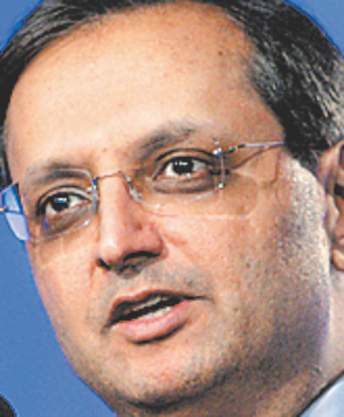Citigroup makes big changes at the top
Published 5:00 am Wednesday, October 17, 2012

- Pandit
Vikram Pandit abruptly stepped down as CEO of Citigroup on Tuesday, surprising Wall Street, after steering the bank through the 2008 financial crisis and the choppy years that followed.
Pandit’s replacement, effective immediately, is Michael Corbat, who had been CEO of Citigroup’s Europe, Middle East and Africa division, the bank said. Corbat has worked at Citi and its predecessors since he graduated from Harvard in 1983, it said.
Pandit will also relinquish his seat on Citi’s board of directors. A second top executive also resigned as part of the shake-up: President and Chief Operating Officer John Havens, who also served as CEO of Citi’s Institutional Client Group.
The news shocked Wall Street, a day after the bank easily beat analyst expectations for its quarterly earnings. Investors sent the stock price to its highest level since early April.
Citigroup offered no explanation for the sudden departures.
Pandit is credited with slimming the bank by selling businesses and removing it from government ownership after a bailout in 2008.
He also righted the company’s balance sheet after billions in losses on bad investments made before he took the helm.
Today, Citi is the country’s third-largest bank, with $1.9 trillion in assets, according to the Federal Reserve. It trails only JPMorgan Chase, with $2.3 trillion, and Bank of America, with $2.1 trillion.
But Pandit’s massive pay packages have raised the ire of investors. Some in government believed the bank was too slow to address its problems as they emerged in the months before the crisis caught fire in September 2008.
In March 2009, as the crisis raged, President Barack Obama ordered the Treasury Department to consider breaking up Citigroup and removing its executives, according to a behind-the-scenes book about the crisis published last year by journalist Ron Suskind.
Treasury Secretary Timothy Geithner ignored Obama’s request, according to Suskind’s account. Geithner and the White House have disputed his version of events.
Pandit had another opponent in Sheila Bair, an influential bank regulator who ran the Federal Deposit Insurance Corp. during the crisis. Bair wanted the government to fire Pandit after it extended billions in bailouts and guarantees to his company. Geithner disagreed, and Pandit kept his job.
In an interview with CNBC Tuesday after Pandit’s departure was announced, Bair said Citigroup has lacked “a clear strategic direction and focus” under his watch, and said shareholders are unhappy.
She said the bank would benefit from a CEO with commercial banking experience, as opposed to Pandit’s background in investment banking, and that the move would be beneficial for shareholders.
Daniel Alpert, managing partner at the New York investment bank Westwood Capital Partners LLC, said Pandit had done “pretty much all he can do to turn the bank around.”
He said it will be hard for big banks to boost their share prices because of intense pressure from regulators to simplify their businesses.
“There is some meaning to quit while you’re ahead,” Alpert said, noting that it’s harder for executives to win massive pay packages when a company’s stock is flat-lining.
In April, Citigroup shareholders rejected the bank’s proposed pay deals for executives, including Pandit. It was the first time shareholders dinged a Wall Street bank under a provision of the 2010 financial overhaul law that gives them a nonbinding vote on executive pay.
Fifty-five percent of the shareholders objected to deals including the $15 million that Pandit received last year, in addition to $10 million in retention pay. He had accepted a token $1 in compensation in 2010.
Shareholders were frustrated in part because the stock had plunged 44 percent in 2011, after adjusting for a reverse stock split. So far in 2012, it has regained about half of its 2011 losses.
The retention pay was to vest in 2013, as an incentive for Pandit to stay on as CEO. A bank spokeswoman said he would not receive any of that money.
In March, Citigroup surprised observers by failing its stress test, the Federal Reserve’s annual checkup for banks. The Fed said Citi, unlike any of its peers, did not have enough capital to raise its stock dividend and still withstand a financial crisis worse than 2008.
Pandit, 55, said in a statement Tuesday that “now is the right time for someone else to take the helm at Citigroup” after the bank “emerged from the financial crisis as a strong institution.”
Both Pandit and Corbat sent memos to Citi’s 262,000 employees early Tuesday. Pandit did not say why he was leaving, but gave the impression that he felt he had completed a mission.






